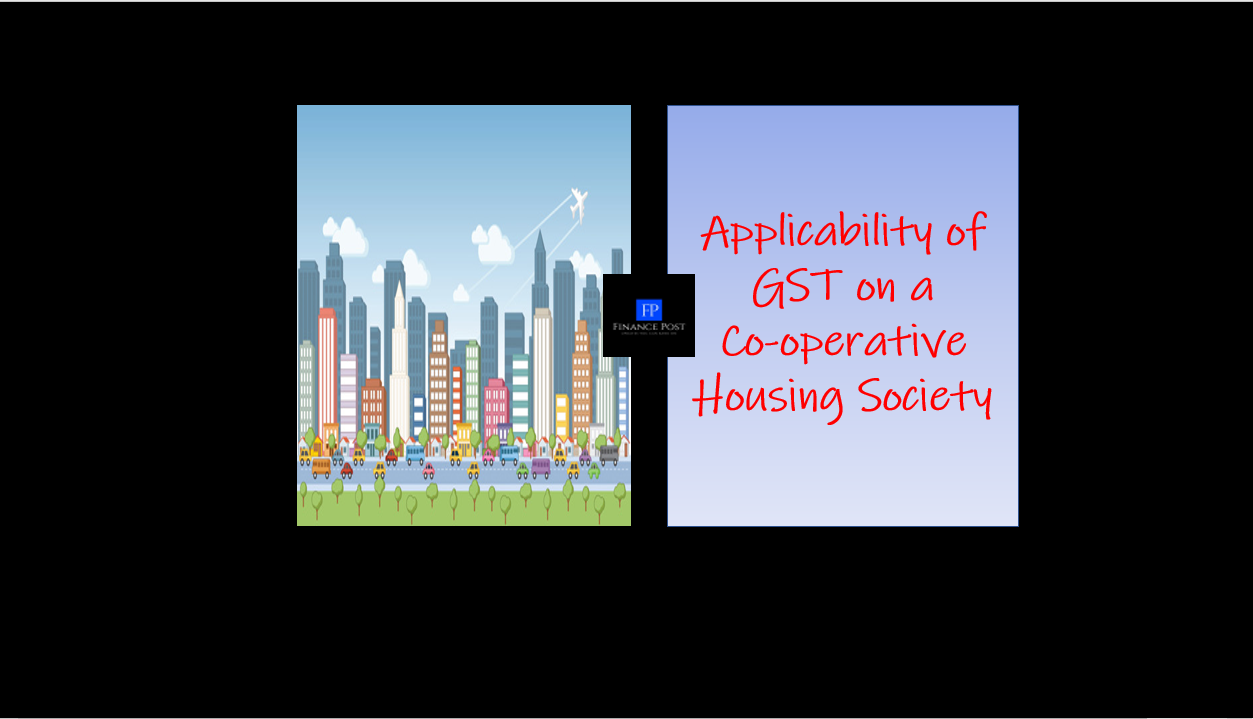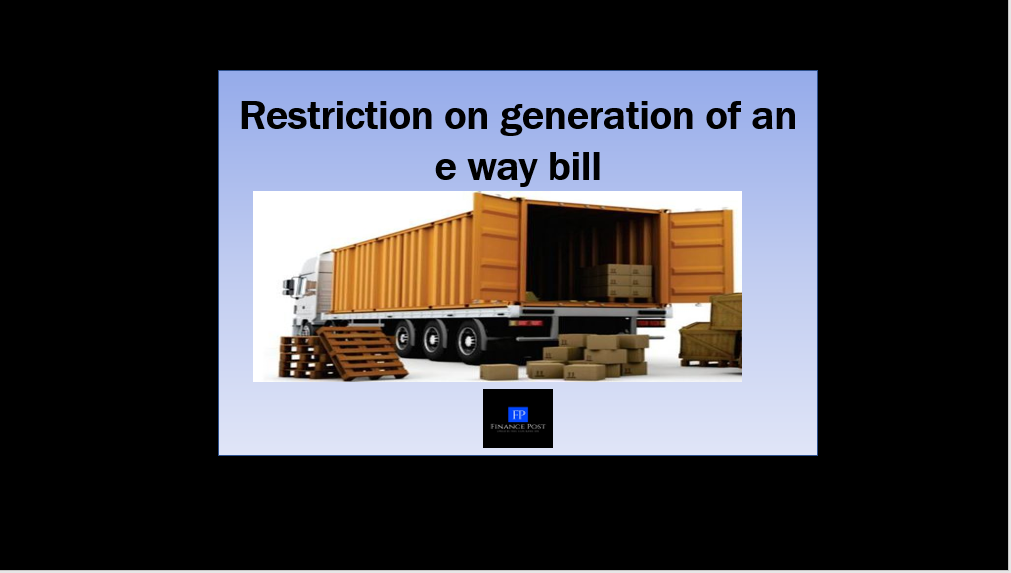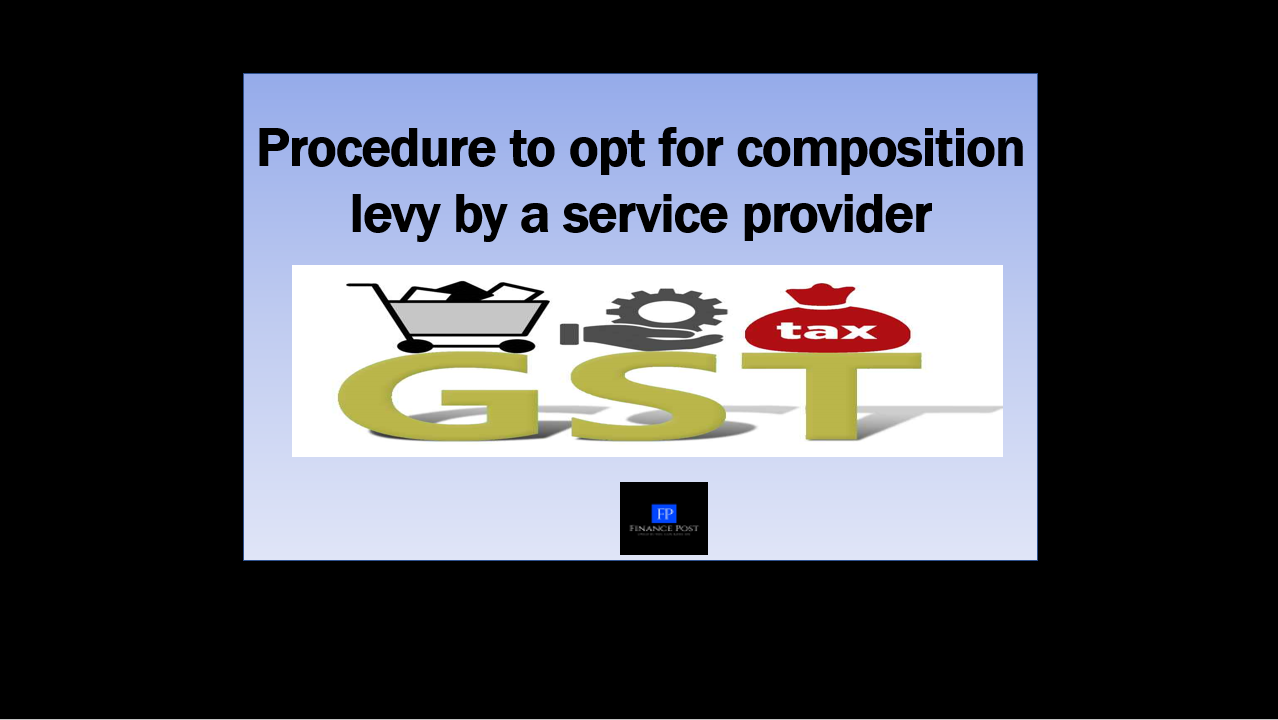
Last updated on August 13th, 2021 at 09:18 pm
How does co-operative housing society come under the purview of GST?
Let’s try and understand the same in light of the following provisions of GST:-
As per section 9 of CGST Act, 2017 GST shall be levied on the supply of goods and services.
As per section 7(a) of CGST Act, 2017 supply means that all forms of supply of goods or services or both such as sale, transfer, barter, exchange, license, rental, lease or disposal made or agreed to be made for a consideration by a person in the course or furtherance of business.
As per section 2(84)(i) of CGST Act, 2017 a co-operative society that is registered under any law relating to co-operative societies is specifically included in the definition of person as per the CGST Act.
As per section 2(84)(i)(e) of CGST Act, 2017 the provision by a club, association, society, or any such body (for a subscription or any other consideration) of the facilities or benefits to its members is specifically included in the definition of business as per CGST Act.
Is it mandatory for all the co-operative housing societies to register under GST?
As per section 22 of the CGST Act 2017, it is mandatory for those housing societies to take GST registration whose aggregate turnover exceeds Rs. 20 lakhs annually.
Note: Mere registration under GST, does not make it mandatory for the society to levy GST on monthly maintenance bills from its members.
Note: Even commercial complexes or commercial societies are also required to obtain GST registration if the aggregate turnover exceeds Rs. 20 lakhs.
What will be included in aggregate turnover for the co-operative housing society?
For a co-operative housing society, the aggregate turnover mainly consists of a contribution from its members. Contribution from members may be taxable under GST or may be exempt. If the aggregate of the following collection from members of a co-operative housing society exceeds 20 lakhs then only it will come under the ambit of GST.
- Maintenance charges by whatever name called i.e. service charges, water charges, electricity charges etc.
- Sinking Fund (Detailed analysis)
- Repairs and Maintenance fund
- Major Repairs fund.
- Non-occupancy charges
- Parking charges
- Interest charged to members
- Interest on Fixed Deposits (though it is exempt supply on which GST is not be levied)
- Rental income from towers, party hall rentals etc.
- Other miscellaneous collection from members
- Transfer fees and share transfer premium
- Any other sum levied by the society to its members by whatever name called.
Note: Property taxes comply with the conditions specified in relation to a pure agent. Hence, property taxes are excluded while calculating the limit of the aggregate value of turnover.
What is the amount of exemption/benefit granted to members of society? | Up to what amount of monthly maintenance charges GST is not to be levied by a registered co-operative housing society?
GST would be applicable if the monthly contribution from members exceeds Rs. 7,500/-. GST would be applicable on the entire amount if it exceeds Rs.7,500/- and not on the differential amount. Refer contradictory views of Government at various junctures.
If the monthly contribution received from members for sourcing of goods and services for the common use of its members from the co-operative housing society is above Rs. 7,500/- then GST will be applicable and levied at the rate of 18%.
CGST(R) Notification no. 2/2018 dated 25/01/18
Note: The above limit of Rs. 7,500 is applicable only when the aggregate turnover exceeds Rs. 20 lakhs. That means if the charge per member is more than 7,500 but the aggregate turnover does not exceed Rs. 20 lakhs than there arises no question of GST.
Note: Monthly exemption benefit per member is only applicable to the housing society. In the case of a registered commercial society, GST shall be levied irrespective of the amount.
Note: In case a Registered Co-operative Housing Society also compromises shops, it will be considered commercial to the extent of shops and GST shall be levied irrespective of the amount charged to shops. GST shall be levied on shops even if the collection from all other members (residential) is less than Rs. 7,500/-. The benefit of 7,500/- exemption was available only for residential societies.
⊗ Interpretation for the shops/ commercial units in a co-operative society is based upon the below definition.
According to Section 2(16) of Maharashtra Co-operative Society Act, 1960, “housing society” means a society, the object of which is to provide its members with open plots for housing, dwelling houses, or flats; or if open plots, the dwelling houses or flats are already acquired, to provide its members common amenities and services.
CBIC’s Clarification on the exemption available to Co-operative Housing Society
Is co-operative housing society allowed to take set-off of taxes paid?
Yes, A co-operative housing society is required to pay the liability of GST after setting off the input tax credit. In the pre-GST regime, the input tax credit of central excise and VAT paid on goods and capital goods were not allowed.
ITC can be claimed for taxes paid on
- Capital goods such as generators, water pumps, lawn furniture, etc.
- Inputs such as taps, pipes, other sanitary/hardware fillings, etc.
- Input services such as Facility management, repair & maintenance services
Note: One of the conditions for claiming the input tax credit is that tax invoices should not remain outstanding for more than 6 months.
What are the compliances to be done by a co-operative society under GST?
A co-operative housing society will have to file the three monthly returns of GST:-
- Return in respect of the outward supply of services called GSTR-1.
- Final monthly GST Return for net liability payable i.e. GSTR-3B.
Can a Co-operative housing society opt for a composition scheme of GST?
No, the Composition levy option has been allowed only for manufacturers, traders, and restaurants. So a co-operative housing society will have to register as a regular taxpayer under GST.
- FAQs on levy of GST on the supply of services to the Co-operative society published by Government of India
- Press release by CBIC on services provided by Housing Society dated 13th July 2017
- GST E-flier published by Central Board of Indirect Tax & Customs
- CGST (Rate) Notification no. 12/2017 dated 28th June 2017
- CGST (Rate) Notification no. 2/2018 dated 25th January 2018
Related Posts
- 50th GST Council Meeting - 11/07/2023
- GST Compliance Calendar of October 2023 - 01/04/2023
- GST sections amended in Finance Act 2023 - 27/03/2023
Disclaimer: The above content is for general info purpose only and does not constitute professional advice. The author/ website will not be liable for any inaccurate / incomplete information and any reliance you place on the content is strictly at your risk.
Follow us on Social Media by clicking below
Follow @financepost_in


What if monthly maintenance of individual is less tha 7500 but the society turnover is more than 20 lakhs or 40 lakhs
Society will have to register for GST. But GST will not be charged to individual flat owners as maintenance charges does not exceed Rs. 7,500/-
Sir,
Can Society Claim GST Refund on ITC due to Outward Rate is less but ITC is more?…
We had applied under inverted but Officer said the society is not eligible to take refund on ITC. so you guide us.
IS GST APPLICABLE WHEN CO OP HSG SOC RECEIVE DONATION OR FUNDS IN COMMON AMMINITIES FUND ETC WHILE TRANSFERRING FLAT?
In my opinion, it should be taxable. As the government has kept specifc items(like maintenance up to 7500, property tax, electricity charges, water charges, etc) out of the purview of CHS everything else if any will be liable to GST.